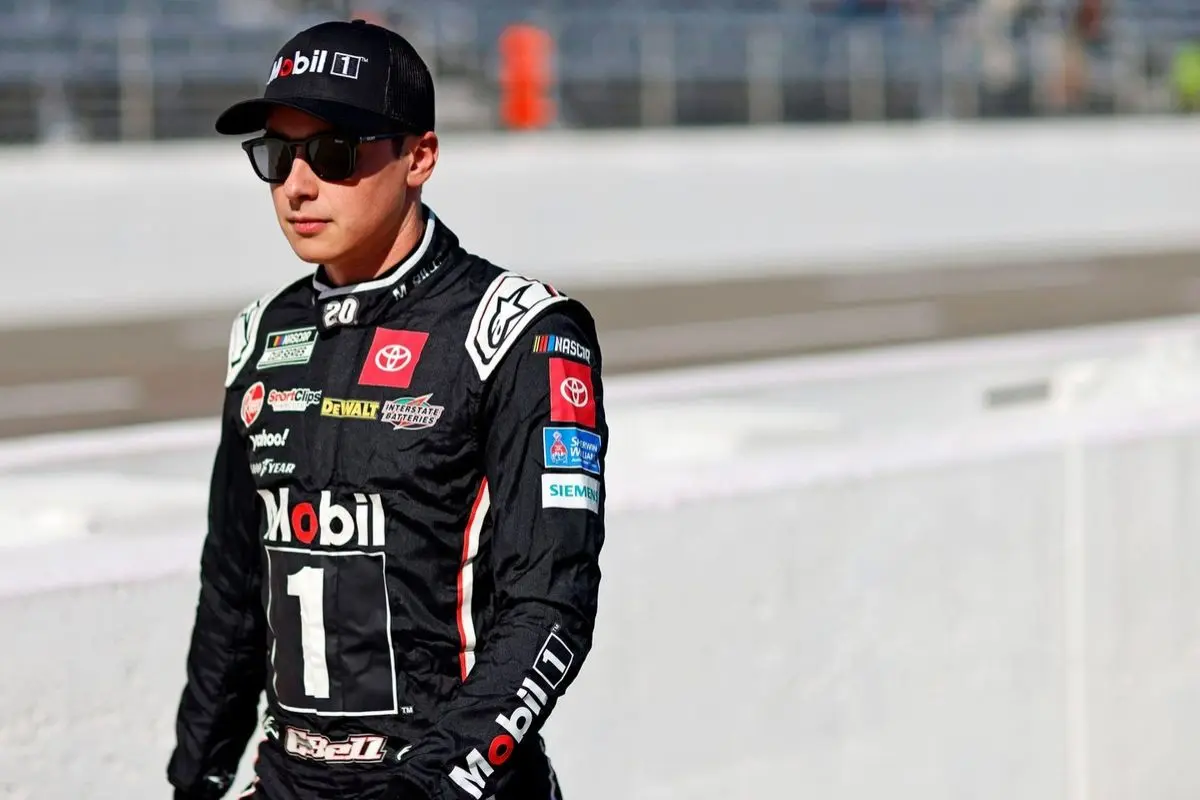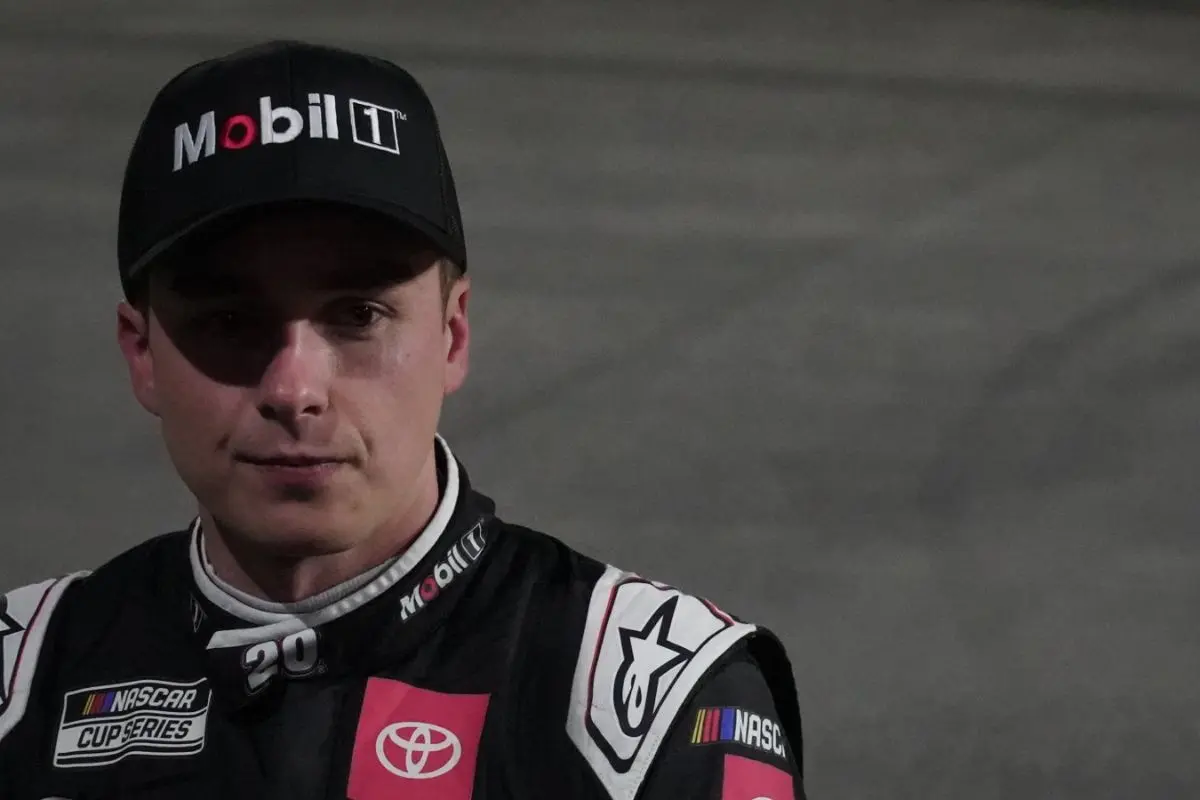Kyle Petty Uncovers NASCAR’s Big Rulebook Flaw: Kyle Petty has spotlighted a critical flaw within NASCAR’s rulebook that permits manufacturers to manipulate race dynamics. He specifically pointed to the tactical alliances among Chevy drivers during recent races aimed at benefiting William Byron, raising concerns about the absence of clear regulations governing such actions. This situation has prompted discussions about fairness and the integrity of competition in NASCAR. The recent playoff controversies, particularly with Christopher Bell‘s penalties and comparisons to Ross Chastain’s tactics, further highlight the need for an overhaul of the regulatory framework.
Key Highlights
- Kyle Petty criticized NASCAR’s lack of explicit rules against manufacturer manipulation, highlighting concerns over race strategies influenced by team alliances.
- He emphasized that the tactical blockades formed by Chevy drivers to aid William Byron raise questions about fairness in competition.
- Petty called for a reassessment of NASCAR’s regulatory framework to restore integrity and confidence among fans and competitors.
- The inconsistency in rule enforcement, particularly in penalties, worsens the issue of potential manufacturer control over race outcomes.
- Addressing these flaws in the rulebook is crucial to ensuring a level playing field and maintaining the sport’s credibility.
Martinsville Playoff Race Sparks Debate: Fan Reactions and Favoritism Claims
The recent playoff race at Martinsville Speedway stirred up a whirlwind of controversy, as fans took to social media to voice their polarized opinions on the event. The emotional intensity surrounding the race was palpable, with discussions primarily centered on perceived favoritism towards Hendrick Motorsports and the controversial penalties imposed on Christopher Bell.
This division in fan sentiment highlights the intricate dynamics at play within NASCAR, especially as the competition heightens on the road to the championship. Many fans expressed their belief that Hendrick Motorsports, a powerhouse organization in NASCAR, was receiving preferential treatment from officials, raising questions about the integrity of the competition.
This sentiment reflects a growing concern among the fanbase regarding the transparency of NASCAR’s decision-making processes. On the other end of the spectrum, supporters of Christopher Bell argued that the penalties he faced were disproportionate and unjust, emphasizing a perceived inconsistency in how rules are enforced among different teams.
Kyle Petty’s Criticism on Alleged Race Manipulation
Amid the ongoing discussions of favoritism and fairness stemming from the Martinsville playoff race, Kyle Petty emerged as a prominent voice addressing the implications of alleged race manipulation. His insights highlighted the intricate relationship between driver strategies and manufacturer influence, raising critical questions about the integrity of competitive racing. Petty’s assertions emphasized a troubling perception that NASCAR’s rules may be inadequately equipped to alleviate these dynamics.
Petty specifically criticized the actions of Chevy drivers who, during the race’s concluding laps, formed a tactical blockade to facilitate the advancement of William Byron. This move, he argued, showed a broader trend where manufacturer strategies can dictate race outcomes, leading to potential inequities that reduce the spirit of competition.
While acknowledging that the debate over manipulation is complex, Petty stressed that the absence of explicit rules governing manufacturers’ influence on team strategies creates a loophole that can be exploited.
View this post on Instagram
His commentary serves as a clarion call for NASCAR to reassess its regulatory framework to guarantee that all competitors operate under the same standards of fairness. The implications of this discussion extend beyond a single race, suggesting that a systemic overhaul may be necessary to restore confidence among drivers and fans.
The Wall Ride Incident: A Safety Violation and Penalty for Bell
A significant moment in the recent race unfolded when Christopher Bell attempted a daring tactic against the wall, echoing Ross Chastain’s famous “Hail Melon” move from two years prior. However, unlike Chastain’s celebrated success, Bell’s move resulted in an immediate penalty for a safety violation. NASCAR had established strict regulations against such tactics, primarily due to the potential hazards they pose to drivers and crews.
“Everybody wants to talk about use the word manipulation. And that’s fine, they can use it. That’s a big word. We didn’t learn that in Randolph County but that’s a big word. There is no rule and you said it before, that’s the rule, there is no rule in the rulebook against manufacturers having input with teams. There is a rule that you can’t ride the wall and he rode the wall”. – (Kyle Petty)
Bell’s attempt to gain an advantage over William Byron was perceived as an aggressive but instinctive move, yet it ultimately cost him dearly. The repercussions were substantial, as the penalty not only stripped him of essential race position but also eliminated him from the championship competition. This outcome raised questions about the consistency and enforceability of NASCAR’s rules, especially given the subjective nature of the incident.
The backlash from fans was noticeable, with many arguing that the penalty was excessively lenient considering the circumstances and Bell’s lack of intent to cause disruption. This incident highlights the ongoing tension in NASCAR regarding how safety regulations are interpreted and enforced, emphasizing the need for clearer guidelines in the face of evolving race strategies.
Chevy Teams Fined and Penalized: NASCAR Takes Action
Recent actions by NASCAR have emphasized the regulatory body’s commitment to maintaining fair competition within the sport, particularly in view of the alleged manipulation involving the Chevy teams. The imposition of substantial penalties on drivers Ross Chastain and Austin Dillon, and their respective teams, signals a decisive approach to enforcing compliance with the rules.
Both drivers were fined $100,000, a considerable financial repercussion that highlights the seriousness of the infractions. Additionally, the bans placed on their crew chiefs, spotters, and team executives from attending the Phoenix Raceway finals reflect NASCAR’s intention to hold not only drivers but also the broader team structure accountable for any actions that compromise the integrity of competition.
The stripping of 50 points from teams and drivers further compounds the penalties, potentially impacting their standings and playoff aspirations.
While the safety violation leading to Christopher Bell’s non-negotiable penalty was grounded in concerns for driver welfare, the situation with Chastain and Dillon opens the door for a more detailed discussion. They retain the option to challenge their penalties through a swift trial process, a provision that introduces judicial review within the NASCAR framework.
Christopher Bell’s Crew Chief Defends the Move: No Comparison to Chastain
The ongoing discourse surrounding Christopher Bell’s penalty has sparked considerable debate, particularly following the remarks from his crew chief, Adam Stevens. In defending Bell, Stevens emphasized that the incident at Martinsville should not be conflated with Ross Chastain’s infamous “Hail Melon” move.
“If we’re just talking about the decision, this situation is nothing like the situation of the 1 car. We attempted to make the corner. We passed the 23. We got into the marbles. He got into the fence after we passed the 23. We slowed down a full second from our previous lap. We weren’t up there matting the gas and grabbing gears. It’s just a different situation. It sucks that it’s a judgment call and you can’t appeal an in-race violation, but I just don’t see anything that’s even remotely close to what the 1 did that they outlawed.” – (Adam Stevens)
He articulated that Bell’s actions were a reaction to losing control of the car while attempting to drive a corner, ultimately resulting in contact with the wall after overtaking Bubba Wallace. This distinction is essential, as it highlights the difference between a tactical strategy and a reckless display intended to manipulate race outcomes.
Stevens further noted that the #20 car’s notable deceleration post-incident shows that Bell did not execute a calculated wall-riding strategy akin to Chastain’s. The frustration expressed by Stevens regarding the inability to appeal in-race violations emphasizes a vital flaw in NASCAR’s regulatory framework, which has implications for fairness and consistency in officiating.
News in Brief: Kyle Petty Uncovers NASCAR’s Big Rulebook Flaw
In view of recent events in the NASCAR playoff race at Martinsville, notable concerns have emerged regarding the integrity of race outcomes and the role of manufacturers in influencing competition. The controversy surrounding the Wall Ride incident and subsequent penalties shows the complexities of enforcing rules within the sport.
The actions taken by NASCAR against Chevrolet teams, coupled with differing perspectives on race strategy, highlight the need for a thorough re-evaluation of regulations to guarantee fairness and transparency in racing.
ALSO READ: Kyle Petty Normalizing Cheating Amid Chevy Cheating Scandal? Faces Backlash from NASCAR Fans!



